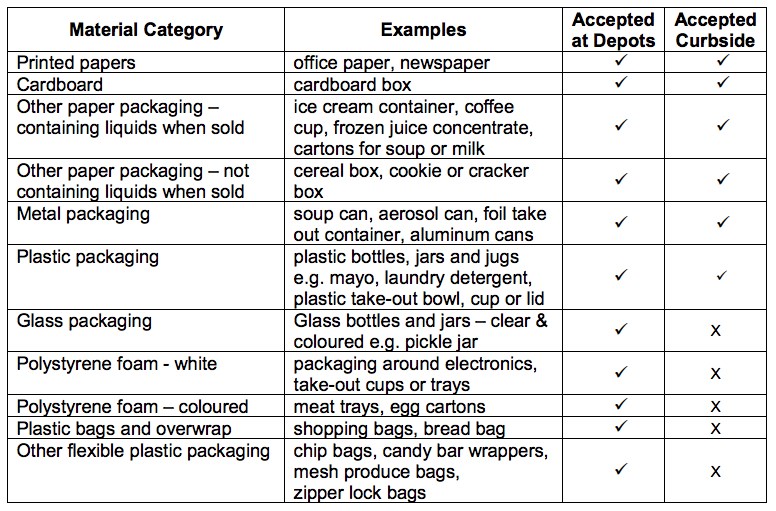Curbside recycling is on the table for rural residents, but it’s not yet clear whether they want it.
So, Sunshine Coast Regional District (SCRD) directors supported a recommendation from staff to circulate a questionnaire to find out.
The motion, made at a Feb. 20 infrastructure services committee meeting, is pending board approval.
Currently, rural residents have access to recycling depots in Gibsons, Sechelt and Pender Harbour, all of which are subsidized through Recycle BC.
Recycle BC also provides financial incentives for curbside recycling, and with the subsidies in place, the cost of the service has been estimated at $20 per household for bi-weekly manual collection when residents supply their own blue boxes.
If curbside pickup goes ahead, depots would stay open, but would lose revenue from Recycle BC. Taxation would be used to make up the losses, which are expected to range from $30,000 to $50,000.
Switching to curbside recycling could keep more garbage out of the landfill, according to staff. A 2014 study found that 12 per cent of the landfill’s garbage comprised recyclable materials – paper and rigid plastic containers. Switching to bi-weekly curbside recycling is also part of the SCRD’s solid waste management plan.
However, directors David Croal for Gibsons and Lori Pratt for Halfmoon Bay questioned that rationale, since curbside recycling could lead to more contamination than depots.
Further complicating matters is the fact that depots accept more materials than curbside recycling. For example, glass jars and bottles, plastic bags, polystyrene foam, chip bags and other plastic packaging and overwrap aren’t accepted in blue bins, but can be recycled at depots.
Those kinds of limits could undermine the switch, said Croal and Pratt.
Pratt ultimately supported moving ahead with the questionnaire, but cautioned that it should be upfront about the details. “If the community wants a service and is willing to pay for an increase in service, then of course let’s do that. But I want to make sure this is something they want and they’re very clear on what it is.”
The questionnaire would be launched this fall and a staff report would come late 2020 or early 2021 with options for next steps. If the response rate is low, staff said they would look at other ways of gathering feedback.
The staff report also gave an alternative of proceeding with the recycling program without the questionnaire, an option Roberts Creek director Andreas Tize said he preferred, based on a Facebook survey and community input.
“Roberts Creek would, I think, like to see it go forward and go forward as quickly as possible,” he said.
Curbside recycling is one of three major changes to waste disposal services being considered by the SCRD board. Recently, directors voted to move ahead with weekly curbside organics pickup and transition to bi-weekly garbage pickup.
At the Feb. 20 meeting, directors also voted to send a letter to Environment Minister George Heyman to ask that BC Recycling regulations be expanded to include the industrial, commercial and institutional sector for packaging and paper products.



